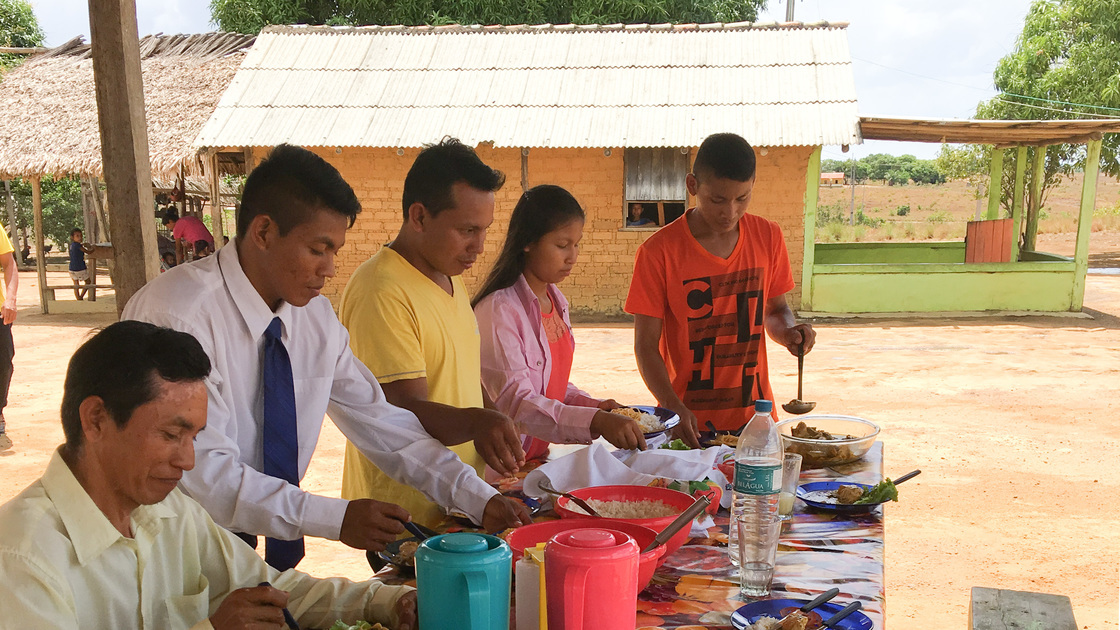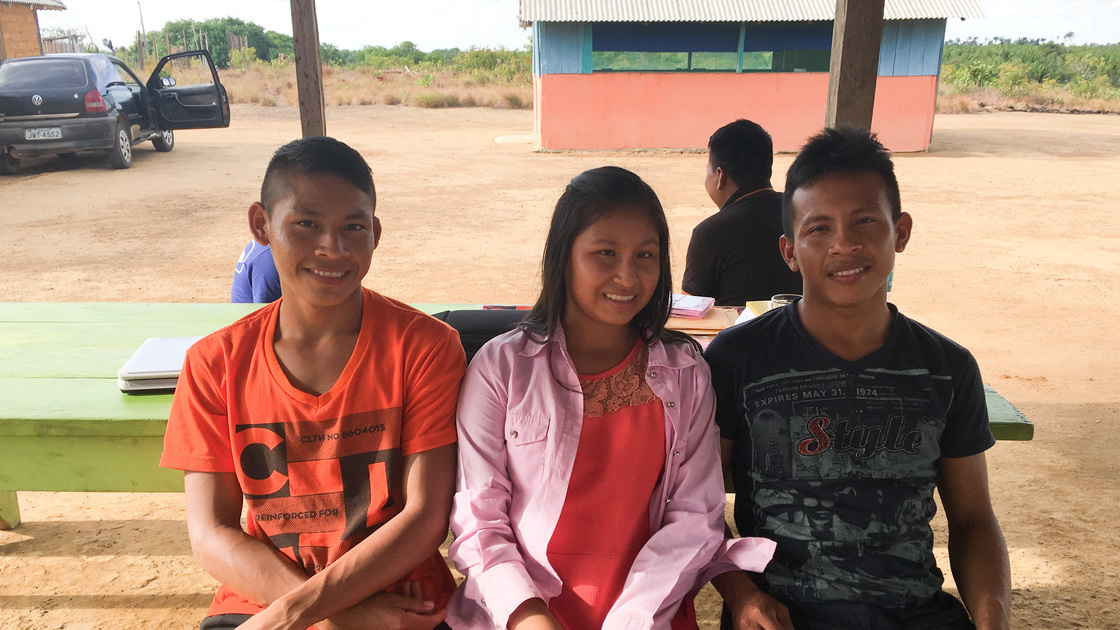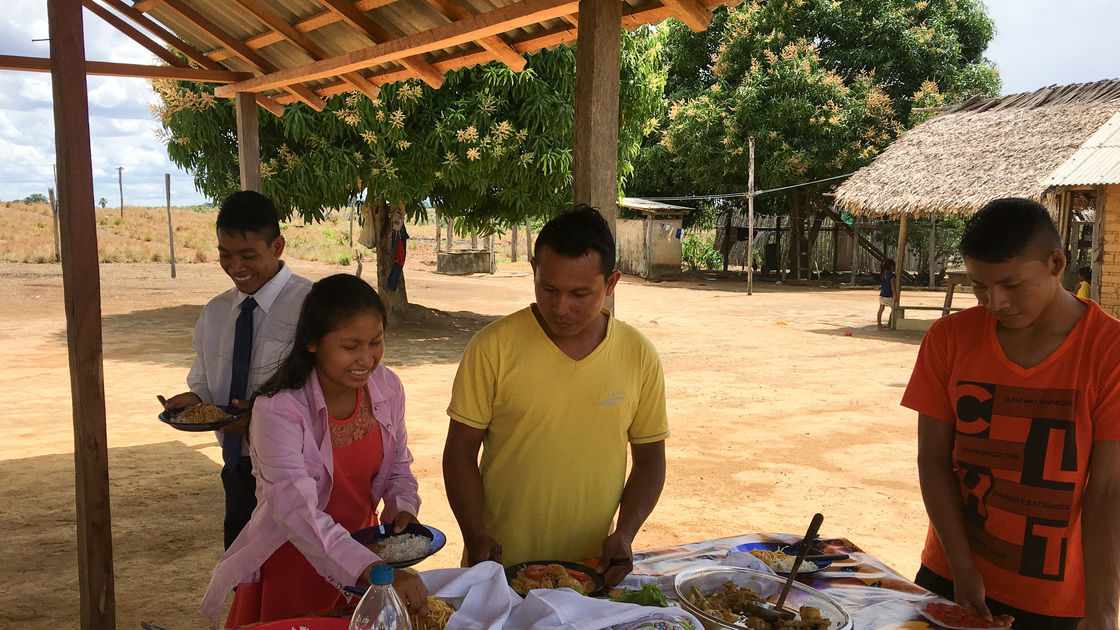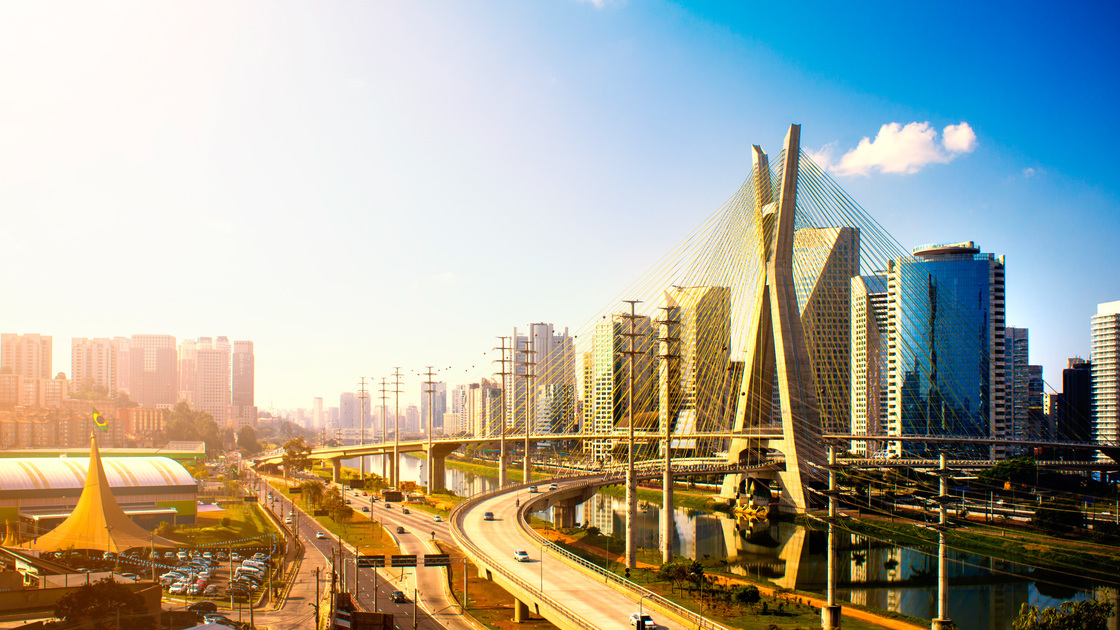EDMOND—Philadelphia Church of God members living in Brazil received a rare visit from a minister in early March. Local Elder Deryle Hope visited the members of the Philadelphia Church of God who reside in Brazil.
Mr. Hope, who speaks Brazil’s official language, Portuguese, first flew to southern Brazil, visiting the Church’s only member there, Madeleine Catussatto. Originally from Switzerland, she now lives outside São Paulo, Brazil’s largest city, located on its southeastern coast.
“In southern Brazil, especially in the state of São Paulo, it’s like living in New York,” Mr. Hope said regarding the atmosphere. “It’s high-rise buildings, millions of people, lots of traffic. It’s a very urban setting.” São Paulo is Brazil’s largest city and has a population of more than 21 million people.
“It’s Latin in temperament,” Mr. Hope said of Brazil, “which means that people tend to be very gregarious and family orientated. They like doing things outdoors and with friends. So there are a lot of people out and about and doing things, which makes for a lot of foot traffic.”
Of the 21 million people living in and around São Paulo, six are prospective pcg members from three households. These six have been reading literature in Portuguese and met together with Mr. Hope, discussing their backgrounds, sharing their interest in the PCG, and asking questions. These six people met with Mr. Hope at his hotel room in Campinas, a city that Mr. Hope worked in years before in the financial departments of Bendix Brakes and American Company.
Mr. Hope said that members can “pray that God preserves who He’s working with. There are other [Laodicean] groups there [in Brazil]. They need to keep their focus. They can’t dabble with other groups. With those in the Church, they need to keep strong.”
After three days in southern Brazil, Mr. Hope flew by small regional jet north to Boa Visia, Brazil, and met with Preaching Elder Samuel Seebran, a minister who serves in Trinidad and Guyana. The two men then traveled two hours by car to visit the northern Brazilian Church members in a small settlement southeast of the Guyana border.
Brazil’s northern region includes the giant Amazon River basin as well as most of the nation’s agricultural areas. Mr. Hope said that Brazil, which is larger than the continental United States, “is a huge country and the difference between the north and south is tremendous. The area that the members live in is very rural. They have electricity, but it may not function for several hours out of the day. They have well water and they work the land, so they are closer to nature.”
The four baptized PCG members in northern Brazil live relatively close to the Guyanan border. They are related to each other, and along with their families, about 20 individuals are interested in the Church and listen to sermon CDs together.
Baptized member Robert da Silva and his son Lincon were able to attend their first Feast of Tabernacles with other brethren in 2017 in Saint Lucia. They said they hope to have enough funds for their wives to join them at future Feasts. “It would be great if their wives could go as well,” Mr. Hope said. “They can meet people and see the Church in action.”
One of the family members first found a Trumpet magazine on the side of the road several years ago. Although most family members are much more comfortable with Portuguese, Mr. Silva and his wife understood enough English to be able to read the issue, which led them to find out more about the Trumpet and the PCG.
Mail delivery is slow in Brazil, so the best way for members and prospective members there to receive literature or news is through the internet. Since the northern members have no Internet connection, Mr. Hope brought them a computer and flash drive so that they can now travel to a nearby village that has Internet access, download what they need onto their flash drive, and bring it home to use on the computer.
Under Latin America Regional Director Carlos Heyer, Mr. Hope leads the Church’s Portuguese translation team, which includes two other translators: Madeleine Catussatto and Canadian member Antonio Vidal. Adiel Granados, who will join the staff after he graduates from Herbert W. Armstrong College in May, also assists with Spanish and some Portuguese translation.
This small team has translated and edited 15 PCG books, booklets and articles, which are available at aTrombeta.pt, the Portuguese-language version of theTrumpet.com that launched in early 2017. This is the only Church literature available to those who understand only Portuguese. The Bible Correspondence Course has been translated and is in the process of being edited.
Leading up to and during the 1980s, the Worldwide Church of God included a dozen members in Brazil who met for services in homes, mainly in São Paulo and Rio de Janeiro. After WCG founder Herbert W. Armstrong died in 1986 and his successors intentionally and subtly rejected the doctrines he taught, Brazilian members were left unaware of what was happening in the Church.
“Imagine how difficult it was for us during those years,” Mr. Hope said, “and we live in the U.S., we speak English. So, we at least had some idea that things were going astray. In countries like Brazil, Church members were often times just cut off and couldn’t understand what was happening. We, in the United States, had the blessing of Malachi’s Messagein 1990 to show us what was happening.”
The first published version of Malachi’s Messagein Portuguese became available about 19 years later in December 2009. The book is now in the process of being edited again, along with Mystery of the Ages.
“The trip to Brazil showed the need for more Portuguese literature and that we really need to keep contact with the people there,” Mr. Hope said. “We are going to continue translating and editing what we can so that the brethren have more reading material.”
Brazil Facts
http://thefactfile.org/brazil-facts/
https://www.britannica.com/place/Brazil
https://www.brazil.org.za/rainforests-of-brazil.html
· Square miles: 3.2 million.
· Population: over 208 million people as of 2018.
· Capital: Brasilia
· Official language: Portuguese.
· Only 3% of the population speak English fluently.
· Most populous Portuguese-speaking country on Earth.
· Largest city: São Paulo.
· São Paulo population: over 12 million in city limits
· São Paulo metro area: 21 million people
· São Paulo is the commercial, financial, and industrial engine of the nation.
· 8th largest economy in the world
· 5th most populous country on Earth.
· There are 26 states within the country
· Contains most of the Amazon River Basin.
· 60% of Brazil is covered in Rain forest
· Main exports: Iron ore, crude oil, soybeans, sugar, and poultry.
· Gained independence from Portugal on September 7, 1822.
· Gold was discovered in 1695.
· 64% of the population is Catholic.
· 180 languages are spoken in Brazil
· According to media reports, by mid-2007, there were 67 tribes in Brazil who have never had contact with modern man.
· An average of 6 million tourists visit every year.
· Leading producer of oranges in the world
· Became a republic November 15, 1889.
· 3 time zones.
· Official currency: Brazilian Real
· Covers 47.3% of the area of South America.
· Literacy rate: 92.6%
· National colors: green, yellow, and blue.
· Climate: mostly tropical, temperate south.
· Drives on the right side of the road.



